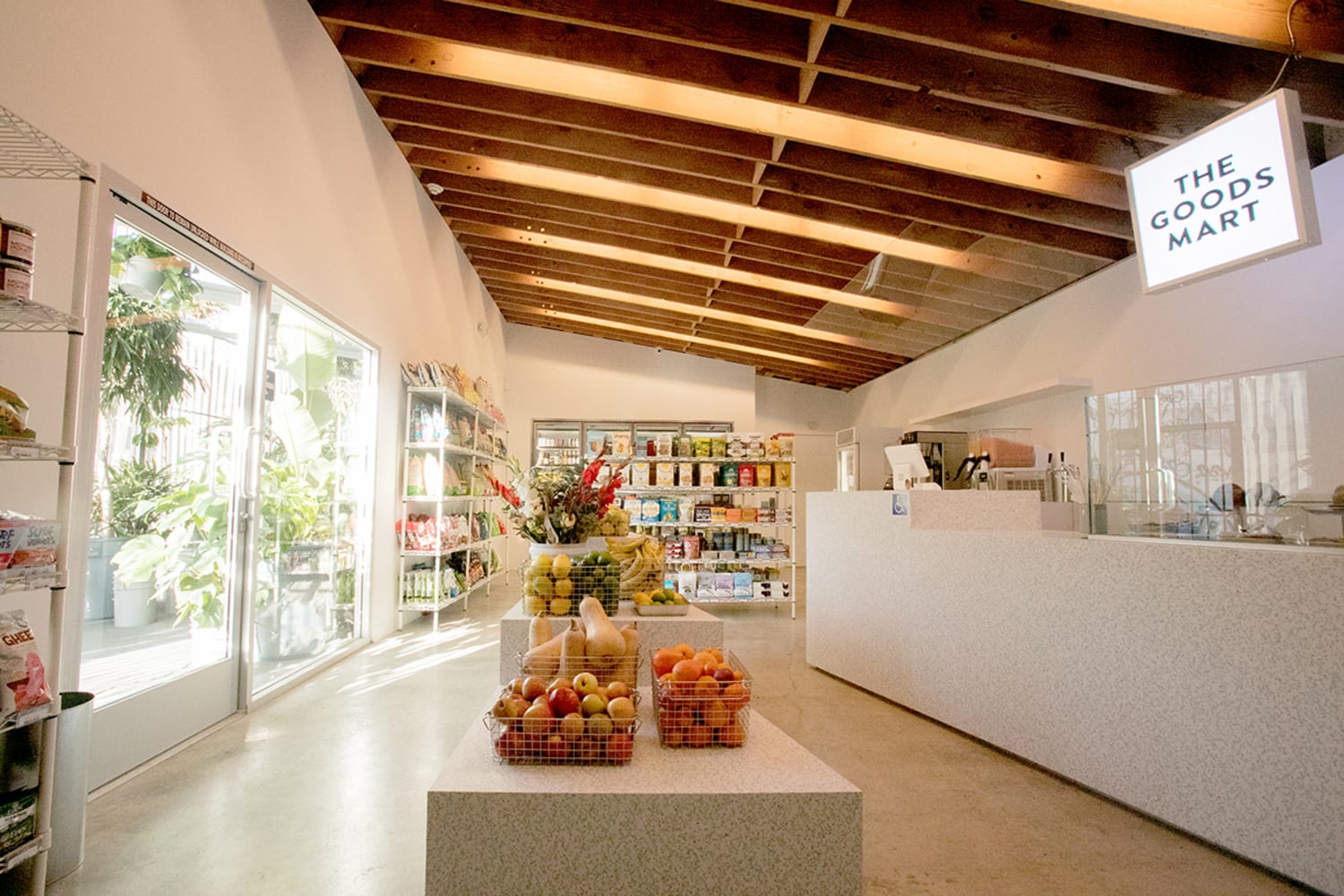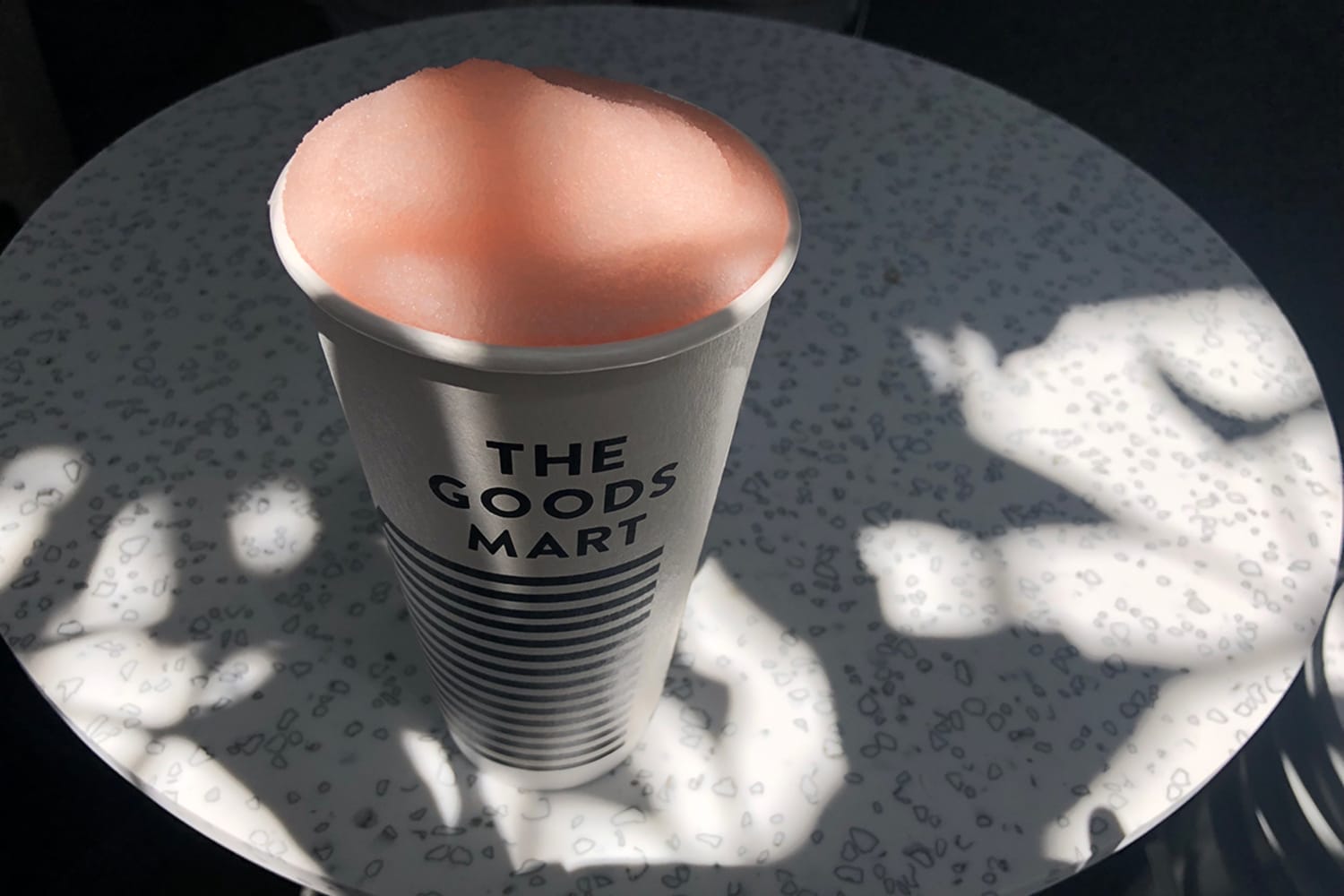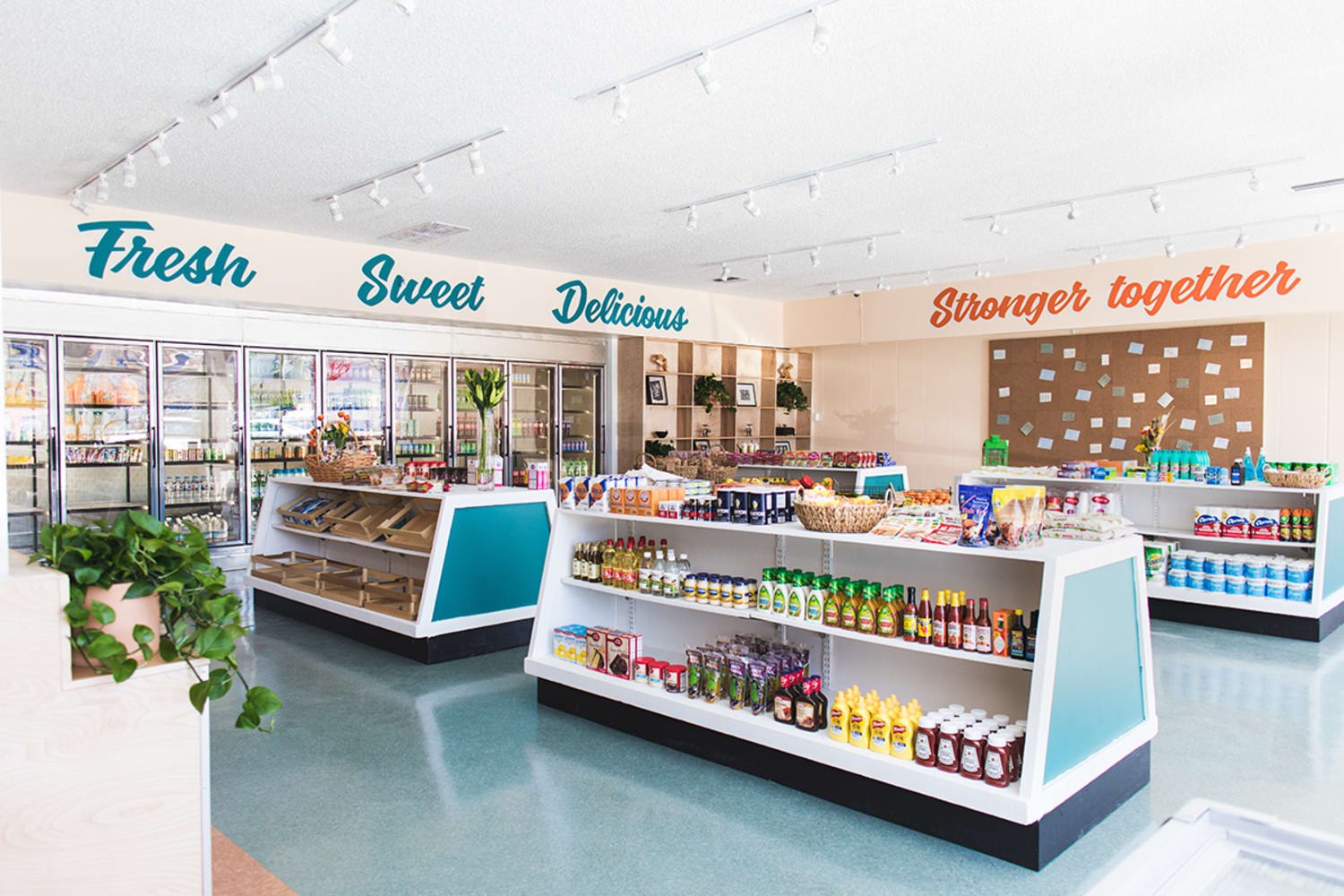The local convenience store is undergoing a healthy transformation, now offering gluten-free bread and kombucha on tap to meet the demands of a rising number of health-conscious consumers. According to a 2017 study by market researcher Maru/Matchbox, 68% of US millennials will pay more for organic food and 66% will pay extra for sustainable food, revealing a consumer group helping to bring organic and locally sourced products into the mainstream.
The 24-hour minimart shifts from junk-food destination to wellness haven.

The Goods Mart in Silver Lake, Los Angeles, opened last month and carries 300 earth-friendly items, including organic slushies in paper cups and sustainable cleaning products. The aim? To shake up “the archaic 7-Eleven model with a fresh, socially conscious rethink of the convenience store,” claims its site.
The health-first environment is curated by food and wellness consultant Rachel Krupa. “As I began to learn about ingredients and evolved with my own eating, I found that nearly all minimarts were limiting. I always had to choose the lesser of two evils—mediocre mixed nuts or preservative-filled beef jerky. I thought, ‘Why am I compromising?’—the answer was The Goods Mart,” Krupa tells JWT Intelligence.



The store stocks all-natural products at affordable prices by partnering with local businesses. An eight-ounce La Colombe coffee goes for $1.25, as does boxed water, and “cosmetically challenged” organic fruits and vegetables are only 50 cents each. The store also has wall-mounted iPads to educate customers on where the products are from and the history behind the brands stocked, in the hope that the information can promote more informed and sustainable consumption.
“We live in a culture of constant movement. Stop and go is a way of life,” says Krupa. “We’re also living in a time of elevated awareness—of the earth and our bodies. Convenience stores of the past aren’t mindful of either of these important aspects of modern living. Sustainable convenience stores are an evolution of our love to stop in, chat, and grab things quickly—only this time they’re stocked with better-for-you products that are better for the planet too.”


In addition to the wholesome products on sale, The Goods Mart does its name justice by offering social initiatives to support the community. At checkout, customers have the option of leaving a tip which goes to local charities, and the store donates food that is nearing its expiry date to the homeless. It even hosts open neighborhood dinners which highlight local chefs.

Other convenience stores are striking a balance between healthy and processed snacks. Choice Market launched in Denver last October, offering organic Cobb salads and packets of seaweed alongside Doritos and M&M’s.
“We curated a product selection that kept in mind that people still eat Snickers and want Diet Coke, with 70% natural and organic products and 30% indulgent treats that are nostalgic for many people,” says Mike Fogarty, founder of Choice Market. “Our target consumer doesn’t only use organic—they’re typically shopping at conventional grocery stores, not only at higher-end, natural stores. We don’t box ourselves in, in terms of what we do or do not carry, and price point is important because, for some folks, 100% organic is just not achievable given their salary and income, but we can still offer better alternatives than their local corner store.”



Fast-casual brands are also identifying with change in convenience stores. American salad chain Sweetgreen worked with the LA Food Policy Council to transform Hank’s Mini Market, a liquor market in South Los Angeles, into a healthy corner store. To help it succeed in the community, its design and supply-chain experts helped Hank’s Mini Market develop a new creative look and advised on merchandise and partnerships.
The growing vegan market has encouraged chef Matthew Kenney to open a plant-based convenience store called New Deli in Venice, Los Angeles. “This project is a one-stop shop for plant-based items and treats. The open area in the back is great to relax in while enjoying a superfood latte and a raw cheesecake, while you are also able to take groceries home for later,” Kenney tells JWT Intelligence.


Younger generations in particular are demanding healthy foods with sustainable brand ethics at their convenience. “The fresh, local, organic, plant-based movement is not a fad by any means. It’s a major trend and a major shift in how people eat,” says Fogarty. This has impacted various food and retail sectors including supermarkets, alcohol brands, and frozen foods. As consumers continue to put natural and nutritious foods first, the new convenience store is becoming the next 24/7 wellness destination.
Please provide your contact information to continue.
Related Content

ACT Good Report Names VML No. 1 Network for Social Impact

